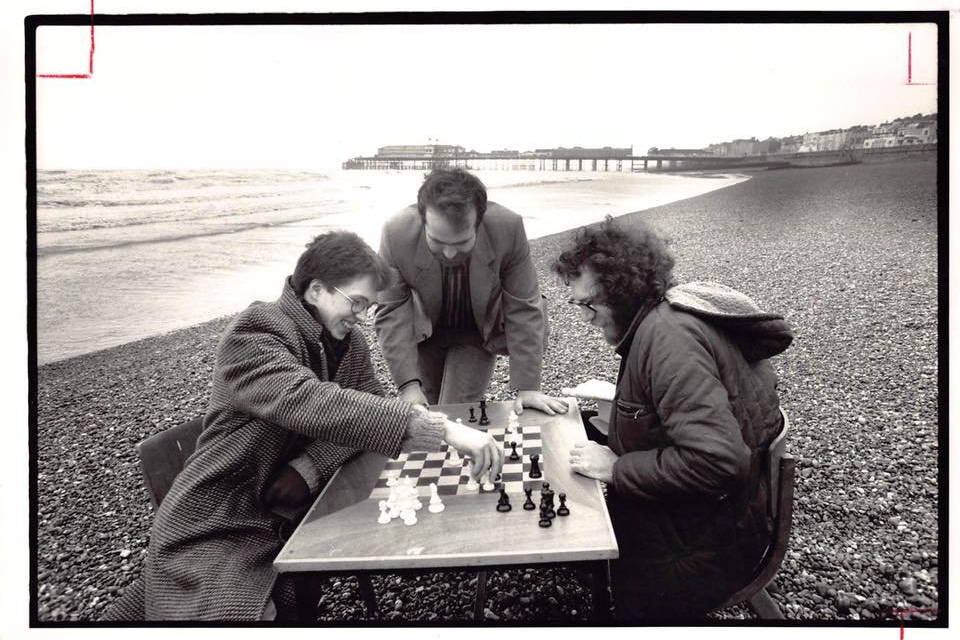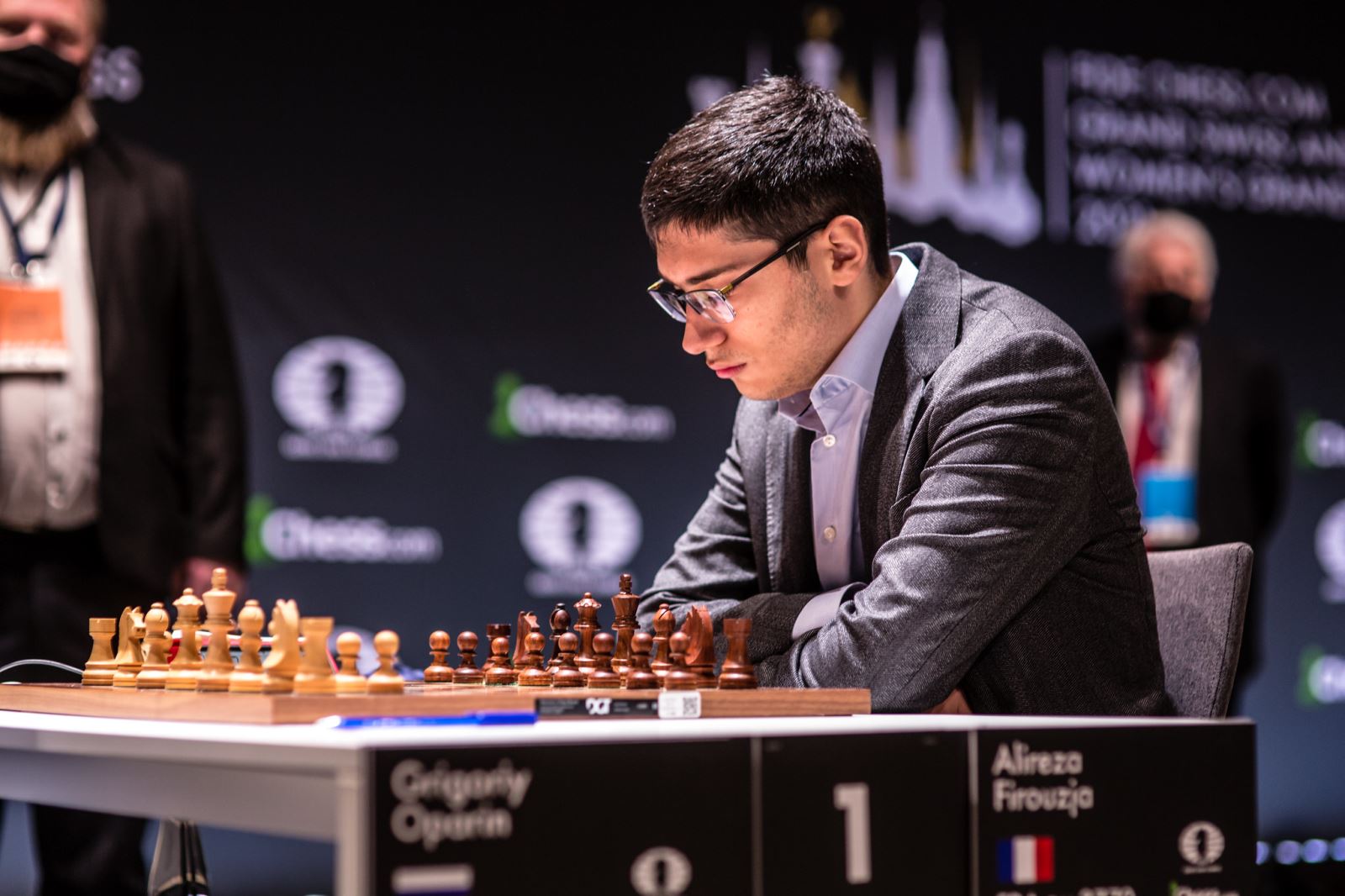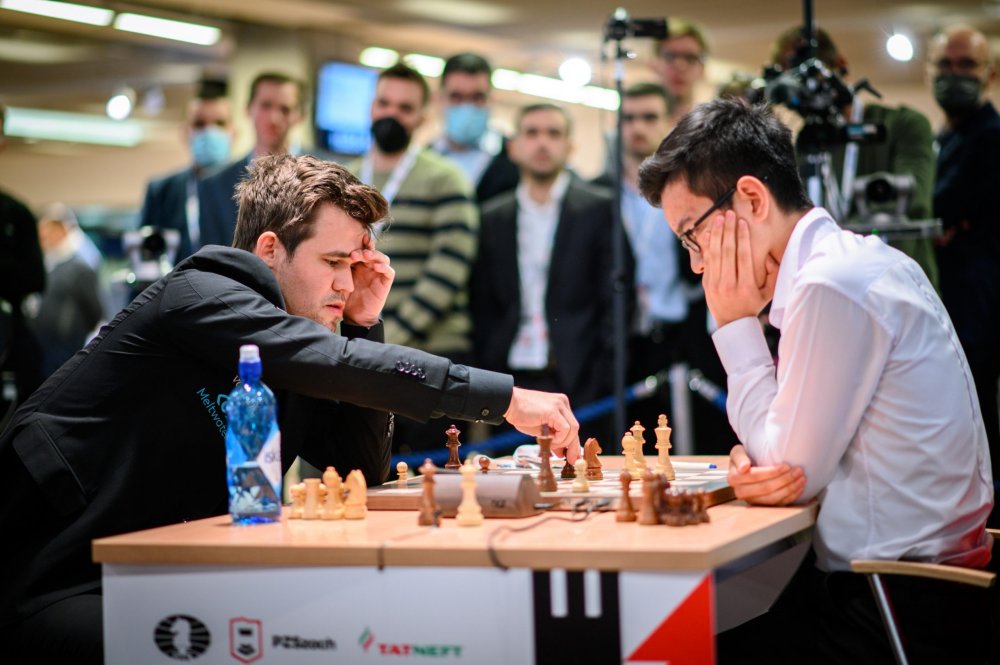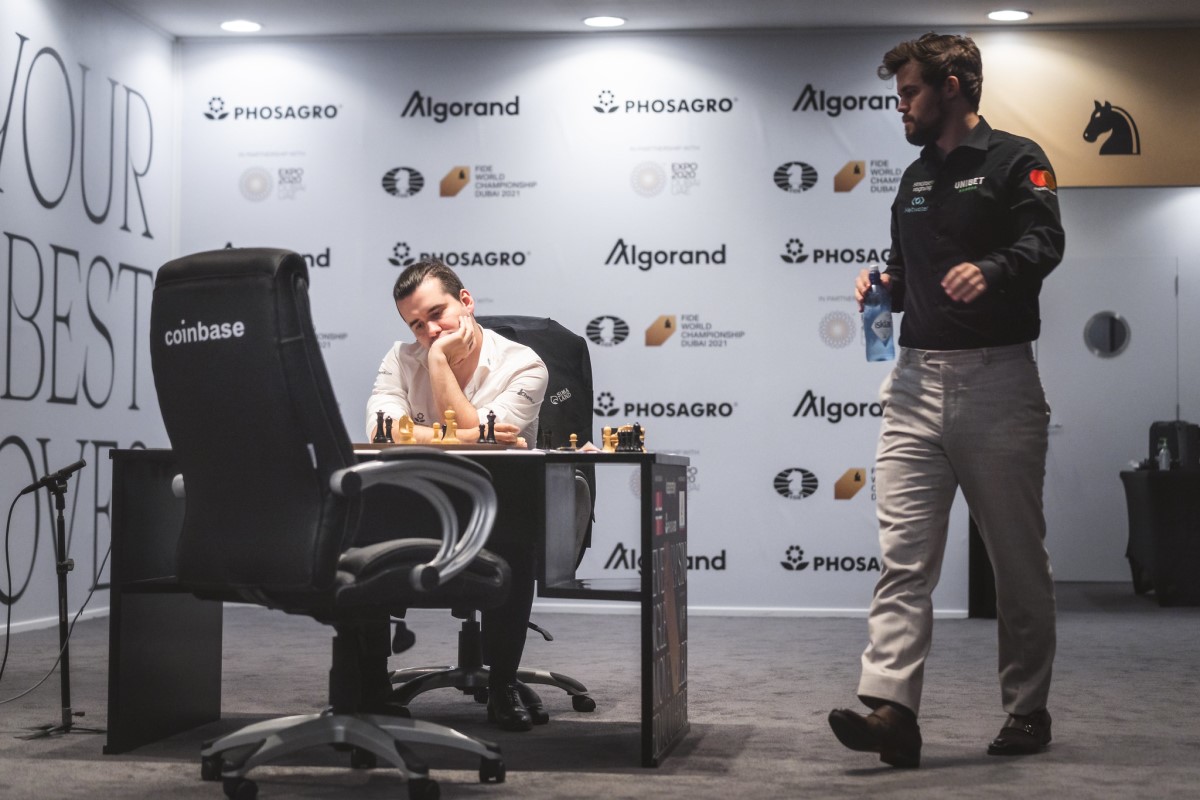


[Note that Jon Speelman also looks at the content of the article in video format, here embedded at the end of the article.]
A very Happy New Year to all as we stagger into 2022 at a time when traditionally we look both forwards and backwards.
Beset by Covid, 2021 was another internet chess year with numerous tournaments centred mostly on European time zones — which was fairly okay for the Americans too but tough on the Asians starting rounds very late in the evening.
Although the internet tournaments are splendid to watch — and indeed stream — they do tend to blend into each other, at least for me: and I wonder how easily even the players themselves can differentiate the various events when they were often sitting at the same desks against more or less the same sets of opponents?
What I do know without recourse to a search engine is that Magnus Carlsen won his own Grand Prix of tournaments, the Meltwater Champions Chess Tour. Carlsen played a huge number of internet games over the year, but of course he also played over the board (and these are easier to remember since there is geography to differentiate them).
Wijk aan Zee didn’t go especially well for him and resulted in a surprise victory for Jorden Van Foresst, who beat Anish Giri in a play-off. Carlsen reached the semifinal of the World Cup near Sochi before losing out to Jan-Krzysztof Duda, and then won the Norway Chess Tournament first equal with Alireza Firouzja but first on tie-break. Of course, he then defended his world title against Ian Nepomniachtchi in Dubai with relative ease. (It looked “easy” with hindsight, but if game 6 had gone differently, the match would surely haver been entirely different).
The other man of the year was undoubtedly Firouzja, whose brilliant performances at the Grand Swiss in Riga and then the European Teams in Slovenia propelled him beyond the 2800 barrier to second in the world.

Alireza Firouzja at the Grand Swiss in Riga | Photo: Anna Shtourman
Carlsen has now declared that he will defend his world title only against Firouzja were he to win the Candidates next summer. But I trust it wouldn’t be rude to suggest that this is at least partly an initial negotiating position...
I’m writing this on Thursday December 30, a little before the second day of play in the world blitz in Warsaw. The rapidplay finished yesterday with a quadruple tie for first between — in tiebreak order — Nodirbek Abdussatorov, Nepomniachtchi, Carlsen and Fabiano Caruana. According to the regulations they shared the prize money, but only the top two played off for the title. And Abdussaturov beat Nepo to become the new world rapidplay champion – a brilliant result for the seventeen-year-old Uzkek: Bravo!
Carlsen, who had gone into the tournament as wold champion at everything that FIDE has a championship for — classical, rapidplay and blitz — greatly harmed his chances in the first game of the final day when he pushed his luck against Abdussaturov in this position:
Of course, 51...Qxh5 draws immediately, but Carlsen tried 51...f5 and later lost when Abdussaturov shepherded the h-pawn through. The exact details aren’t that exciting — tablebases tell us that it was drawn for a long time, but eventually even Carlsen couldn’t avoid faltering.
But the really interesting question is whether Carlsen should regret his decision. It didn’t work out this time and seemed unnecessary (especially with hindsight) since he was sole leader at the time. But he’s based his success on pushing and pushing, most often winning in the end, sometimes having to defend and succeeding and only occasionally actually losing. And presumably he should continue to do so, perhaps just occasionally showing more caution when the tournament or match position dictates this.

Magnus Carlsen facing Nodirbek Abdusattorov | Photo: World Rapid and Blitz Championship
It’s now a day later and the blitz has finished too. (As readers will know) Levon Aronian was leading after day 1 and kept going for much of the day, but crashed in the final rounds. Maxime Vachier-Lagrave beat Carlsen in the final round to share first with Duda and Firouzja and, as with the rapid, it was the first two who played off, with MV-L becoming the world champion.
Looking forward to this year, Wijk starts in less than a fortnight with a very interesting field headed by Carlsen and Caruana. There will be most of the traditional tournaments with luck and the Candidates, which according to FIDE President Arkady Dvorkovich has been pencilled in in the summer, possibly in Madrid, with the next World Championship early in 2023.
Let’s hope, at least, that the proportion of over-the-board tournaments increases. This would not only be good news for us the chess viewing public but infinitely more important an indication that the world situation was improving.
I suppose I should nominate a “game of the year” and the one that sticks in the mind at the moment — not because it was such a wonderful game in itself but because of its length and importance is game 6 in Dubai. It’s been analysed at length on the ChesBase site and elsewhere, so I’m not actually going to give it here again, but perhaps readers would like to make their own suggestions and I can show some of them here in the next few articles.

Ian Nepomniachtchi and Magnus Carlsen during the memorable sixth game of their World Championship match | Photo: Niki Riga
For many years I used to spend New Year at Hastings, and indeed I have the record for the most games played in the Hastings premier by any one player, which is somewhere round about 236 if I remember correctly.
I thought I’d finish with some memories from Hastings starting coincidentally with two very rare losses as White by Ulf Andersson. This is absolutely not because I have anything against Ulf. He’s a very nice chap and a wonderful chess player who is able to retreat and keep his position intact in a way that I’ve never encountered in anybody else. In over a dozen classical games with him, I quite often got positions where I thought I was attacking but they evaporated and we had a lot of draws and a single win for him. But these two are both iconic — for the second I’ve repeated my notes from a previous column
When I started thinking about my own games in Hastings, there were huge numbers of draws, and the losses included several to Evgeny Bareev against whom I didn’t do too badly elsewhere but who had a huge plus score on the south coast. Of the wins, there was a Caro-Kann against Nigel Short — and, of course, the game against Lev Psakhis, in which I played my most outrageous move ever!
Select an entry from the list to switch between games
| Advertising |